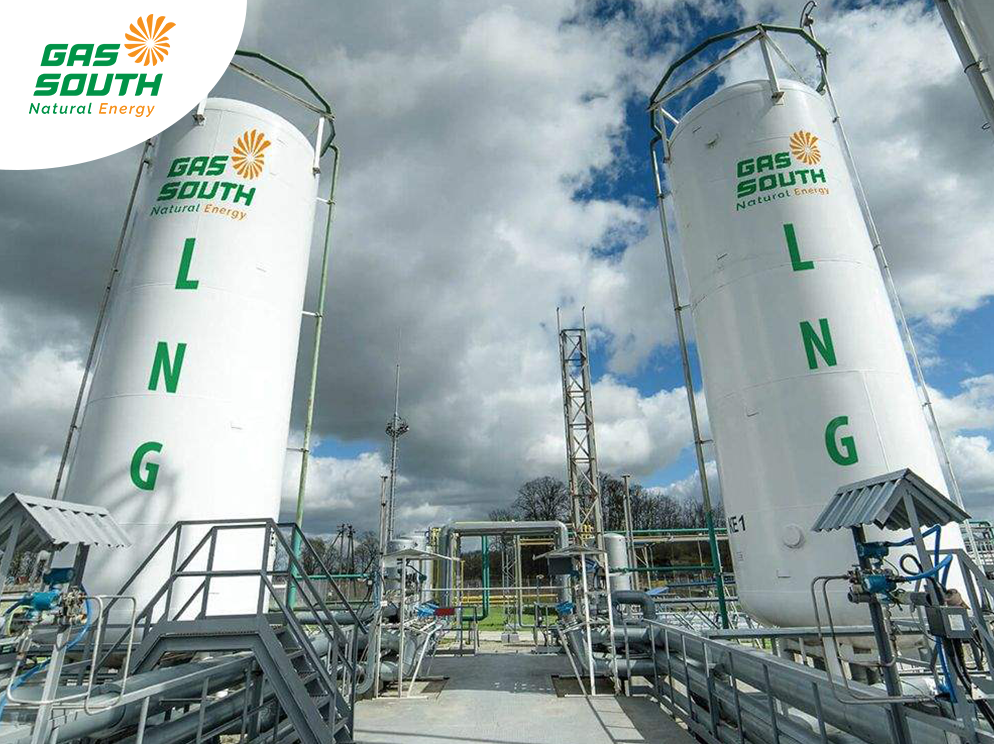Investing in Liquefied Natural Gas (LNG) Stocks: A Lucrative Opportunity in the Energy Sector
Introduction
In recent years, there has been growing interest in the energy sector, particularly in alternative sources of fuel. One such source that has gained significant attention is liquefied natural gas (LNG). As more countries shift towards cleaner energy solutions, the demand for LNG has been on the rise. This blog post delves into the world of LNG stocks and explores why investing in this sector can be a lucrative opportunity for investors.
See More What Is The Lng Collection
Section 1: Understanding Liquefied Natural Gas (LNG)
Before we dive into the investment prospects of LNG stocks, let's first understand what liquefied natural gas is. LNG is natural gas that has been cooled down to its liquid form for ease of storage and transportation. By reducing the volume of natural gas by around 600 times, LNG becomes more convenient to ship across long distances, including across oceans.
More About Us: SOUTHERN GAS TRADING JSC
Section 2: The Growing Demand for LNG
The demand for LNG has been on the rise for several reasons. Firstly, as nations strive to reduce their carbon footprint and transition away from fossil fuels, natural gas has emerged as a cleaner alternative. Furthermore, LNG provides an opportunity to diversify energy sources and reduce dependence on oil-producing countries.
Secondly, LNG is becoming increasingly popular in the transportation sector. As countries seek to reduce emissions from vehicles, many are turning to natural gas as a viable fuel source. This has led to the development of LNG-powered trucks, ships, and even trains.
Section 3: Advantages of Investing in LNG Stocks
Now that we understand the demand drivers for LNG, let's explore the advantages of investing in LNG stocks:
3.1 Strong Growth Potential
The LNG industry is poised for significant growth in the coming years. According to industry reports, global demand for LNG is expected to grow at a compound annual growth rate (CAGR) of around 5% over the next decade. This growth is driven by increasing demand from emerging markets and the ongoing shift towards cleaner energy sources.
3.2 Diversification
Investing in LNG stocks provides diversification benefits to an investor's portfolio. As natural gas becomes an integral part of the global energy mix, owning shares in companies involved in the LNG value chain can help balance risk and potentially enhance returns.
3.3 Stable Revenue Streams
Many LNG companies operate under long-term contracts, providing them with stable revenue streams. These contracts often span several years and are typically indexed to the price of oil or other energy commodities. This stability can provide investors with a sense of security and predictable cash flows.
3.4 Technological Advancements
The LNG industry continues to evolve, with ongoing technological advancements improving efficiency and reducing costs. As companies invest in cutting-edge technologies, such as floating LNG terminals and more efficient liquefaction processes, it presents an opportunity for investors to capitalize on these innovations.
Section 4: Key Players in the LNG Industry
To make informed investment decisions, it is essential to have an understanding of the key players in the LNG industry. Some prominent companies involved in LNG production, transportation, and distribution include:
- Royal Dutch Shell: Shell is one of the largest players in the LNG market, with significant investments in liquefaction plants and shipping infrastructure.
- Chevron Corporation: Chevron has a strong presence in the LNG sector, with major projects in Australia and other parts of the world.
- ExxonMobil: ExxonMobil is involved in various aspects of the LNG value chain, including exploration, production, and marketing.
- TotalEnergies: TotalEnergies is a global energy company with a significant focus on natural gas and LNG. It operates across all stages of the LNG value chain.
- Qatar Petroleum: Qatar Petroleum is the world's largest producer and exporter of LNG. The company plays a pivotal role in shaping the global LNG market.
Section 5: Risks and Challenges of Investing in LNG Stocks
While investing in LNG stocks presents promising opportunities, it is crucial to be aware of the risks associated with this sector:
5.1 Volatility in Energy Prices
LNG stock prices can be influenced by fluctuations in energy prices, particularly oil and natural gas prices. A sudden drop in prices can impact the profitability of companies involved in the LNG industry.
5.2 Regulatory and Political Risks
The LNG industry is subject to regulatory changes and political considerations. Shifts in government policies or geopolitical tensions can impact operations and create uncertainties for investors.
5.3 Competition from Other Energy Sources
While LNG offers several advantages over other fossil fuels, it faces competition from renewable energy sources such as wind and solar power. The increasing adoption of renewables could potentially affect the demand for natural gas and LNG.
Conclusion
Investing in liquefied natural gas (LNG) stocks can be a lucrative opportunity for investors seeking exposure to the growing demand for clean energy solutions. With strong growth potential, diversification benefits, stable revenue streams, and ongoing technological advancements, LNG stocks offer an attractive proposition for long-term investors. However, it is crucial to consider the associated risks such as volatility in energy prices, regulatory uncertainties, and competition from other energy sources. As always, conducting thorough research and consulting with a financial advisor can help investors make well-informed decisions within this dynamic sector.
Remember, investing involves risks, and past performance is not indicative of future results.
#what_is_the_lng, #pgscomvn, #pgs_com_vn, #whatisthelng, #what_is_the_lng, #pgscomvn, #pgs_com_vn/

Nhận xét
Đăng nhận xét